Carr-Gomm’s vision
Carr-Gomm began his career in the army, first in the Royal Berkshire Regiment and then the Coldstream Guards, rising to the rank of Major. Due to his service in the Second World War, he was made a recipient of the Croix de Guerre in 1944, a French award for military heroism.
It was when he retired from the army in 1955 that he began volunteering as the UK’s first male home-help. In his work, he discovered that many of the older people were often lonely, in spite of the fact that they were otherwise relatively well-off in material terms.
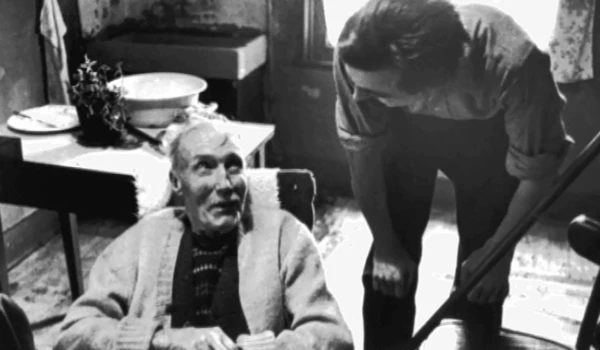
"While I was a home-help I discovered that the want among the old single people was spiritual and not material. They appeared to suffer from loneliness… It seemed possible to remedy [this] by having a house in a street in which the old could live and have companionship and to which the relatives and neighbours could be encouraged to visit and look after them."
-Richard Carr-Gomm
The focus here was on a civic duty of the friends and neighbours to look after local vulnerable people. Nowadays it has shifted towards enabling residents to be a part of and contribute to their community, as opposed to just benefit from it, expanding the notion of community engagement.
The first house
It was on 17th December 1955 that Carr-Gomm acquired his first house at 50 Eugenia Road, Bermondsey, for which he paid £450 out of his army gratuity. This enabled him to welcome his first two residents. With demand rising for this new model of retirement living (though the term was not yet widely used), two more houses followed and were filled soon after.
Donations had started pouring in from those who saw the benefits of his work and, by July the following year, news of the houses had reached America. The rise in donations gave Carr-Gomm £800 to spend on another house and, when two more followed, the first five houses were consolidated into The Abbeyfield Society in 1956. When enough money and support was accrued, houses began springing up elsewhere around the UK. By 1963, Abbeyfield had over 100 homes nationwide, with societies in eight London boroughs and 15 others in other locations including Macclesfield, Brighton, Canvey Island and Oxford.
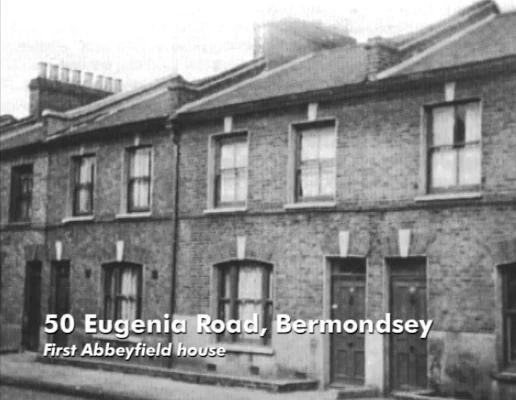
A home from home
Central to Carr-Gomm’s vision was that the residents should feel that their house is their home. Should they wish to, they should be able to lead active, independent lives, and to remain responsible and visible members of their community. Then, as is still the case at Abbeyfield houses and homes now, residents were encouraged to bring their own furniture and possessions and retain their group of friends and community connections from before they moved in. The many opportunities to socialise with their fellow residents cemented the core Abbeyfield value of companionship, while dedicated staff provided activities and outings to enhance their quality of life. Correspondingly, residents could remain as private as they wished, within the confines of their own room that they could feel was very much their own.
One of Carr-Gomm’s aims was to raise awareness of the issue of loneliness and to educate people about it. He actively encouraged people in each house’s local neighbourhood to lend their time, and volunteering became another pillar of Abbeyfield that remains central to our ethos today.
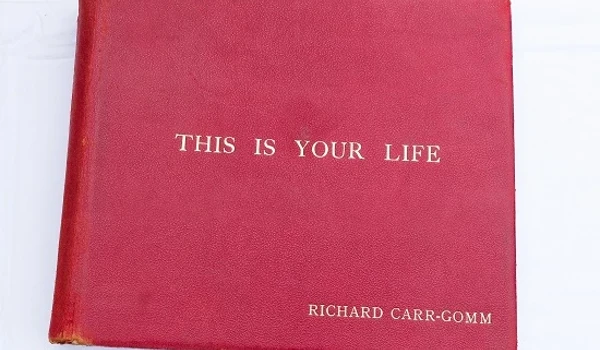
Such were Carr-Gomm’s achievements that, in 1957, he was the subject of an episode of the BBC’s This Is Your Life. The programme was watched by over 12 million people and prompted a flurry of donations to help Abbeyfield grow, along with the support of celebrities including Audrey Hepburn and Spike Milligan.
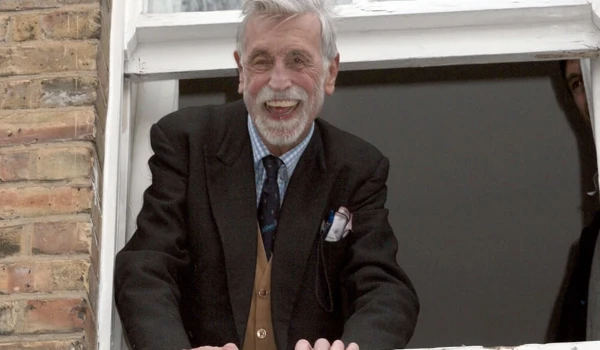
Carr-Gomm subsequently received an OBE in 1985 and a Beacon Prize for lifetime achievement in 2004. He was also honoured with a blue plaque in Gomm Road, Bermondsey (named after one of Carr-Gomm’s forebears, Field Marshall Sir William Maynard Gomm), close to Abbeyfield Road – the road in which he first volunteered as a home-help, and from where Abbeyfield takes its name.
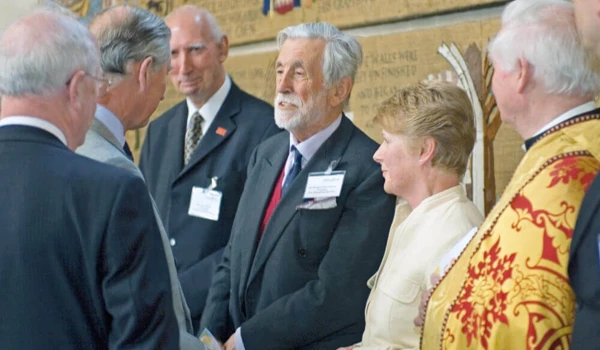
His legacy has been described by HM King Charles as “an idea that [changes] the lives of people for the better by creating a secure and safe home of support to lonely and vulnerable people. His work is an inspiration to us all.”
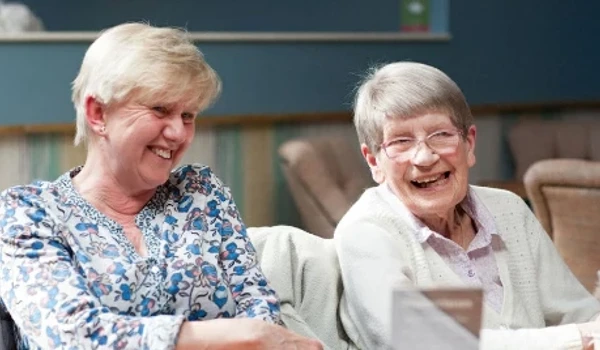
Since its inception, Abbeyfield has grown into an international charity overseeing over 350 houses and homes in eight countries, supporting close to 8,000 residents and employing the services of over 4,000 volunteers and hundreds more professional staff.
At the heart of Abbeyfield today are several core principles that can be traced back to Richard Carr-Gomm’s original vision:
- Companionship – over-55s are particularly vulnerable to the effects of loneliness and isolation, and it is an issue today that is just as relevant as it was in the 1950s. Abbeyfield provides an environment where these effects can be alleviated, where friendships can be built and, through nurturing these relationships, residents can lead fulfilling, meaningful and independent lives.
- Care and support – residents are supported by a committed team of people in a safe and secure place they can call home. Currently, Abbeyfield offers a variety of services and living arrangements to support residents’ specific needs, including independent living, sheltered housing, residential care homes, dementia-friendly care homes, nursing homes and care at home.
- Volunteering – Richard Carr-Gomm was the first Abbeyfield volunteer, and thousands of others have since followed his example to ‘make time for older people’. People of all ages and abilities now volunteer in roles from befriending and supporting with events, to kitchen staff and trusteeships.
- Community engagement – All Abbeyfield houses and homes put themselves at the heart of their local community. They source local volunteers and collaborate with other organisations to offer an enhanced service for their residents. Moreover, residents are also encouraged to make their own contribution to their community and develop a greater sense of purpose in later life, enabling them to discover new and exciting opportunities.
